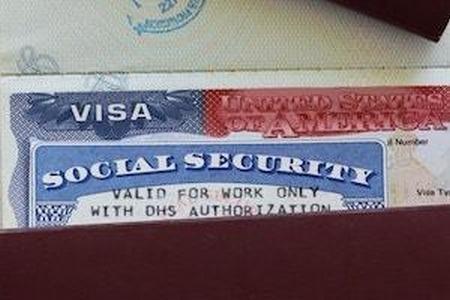Registration Documentation: What Should I Be Carrying?
 Since the takeover of the new administration, immigrants, both documented and undocumented, have been asking multiple questions about potential changes in enforcement at the state and federal level. One of the most common questions in recent weeks asks what an immigrant needs to be carrying on him or her in terms of documents that show status. The answer is that it will depend on the type of status you have.
Since the takeover of the new administration, immigrants, both documented and undocumented, have been asking multiple questions about potential changes in enforcement at the state and federal level. One of the most common questions in recent weeks asks what an immigrant needs to be carrying on him or her in terms of documents that show status. The answer is that it will depend on the type of status you have.
“Registration” is Different
The relevant provision in U.S. immigration law is Sec. 262 of the Immigration and Nationality Act (INA), which holds that any alien over the age of 14, who has been or will be present for than 30 days, must “register” with the federal government. However, the word “registration” has been interpreted in very different ways depending on the category of visa the alien holds (or, obviously, if one is undocumented). Most of the time, registration happens automatically when one enters the country. One common example is the I-94 form, which is considered a registration document for most of those who enter via sea or air.
While many satisfy the registration requirement with their I-94, those with unusual or special status will often require additional documents to prove that status is lawfully held. For example, a lawful permanent resident may prove he or she is ‘registered’ by showing his or her green card. Or, students (those with F-1 or J-1 visas) may show their Form I-20 (the certificate issued by one’s school which identifies the individual as an approved student).
Any document that supports your status will, in most cases, be sufficient to satisfy the requirement. If you have no legal status, this will obviously cause significant trouble.
Increased Scrutiny
While Sec. 264(e) of the INA states that every adult alien (over the age of 18) “shall at all times carry with him … any certificate of alien registration or alien registration receipt card issued to him,” this language was, in reality, rarely enforced until very recently. Many immigration agents, though not all, would allow an immigrant to produce the document in a certain short period of time instead of requiring it immediately—allowing an immigrant to, say, obtain his or her card or visa from his or her house. However, since the changeover, Immigration and Customs Enforcement (ICE) has been instructed to be less forgiving about such lapses.
The recommendation from the Department of Homeland Security (DHS) is for all foreign nationals, even lawful permanent residents, to carry their relevant immigration documents at all times. While many immigration personnel still do not ask for them, it is important to remember that they are legally permitted to do so. Some legal professionals are even recommending that naturalized U.S. citizens keep their passport or other proof of citizenship on hand—in the past, U.S. citizens with foreign appearance have sometimes been unjustly subjected to stops and poor treatment, or even imprisonment in extreme cases.
Contact an Immigration Attorney
While ultimately, you are the best judge of what to carry and how to conduct yourself, it can make a big difference in terms of your safety and sanity to consult an attorney and hear the most accurate facts about the law itself. The Chicago-area deportation defense attorneys at Mevorah & Giglio Law Offices can help answer your questions and suggest how you might handle any issues that may appear in the future. Call us today to set up a free consultation.
 English,
English,
 Spanish,
Spanish,
 Polish,
Polish,
 Urdu
Urdu













 Make a Payment
Make a Payment



